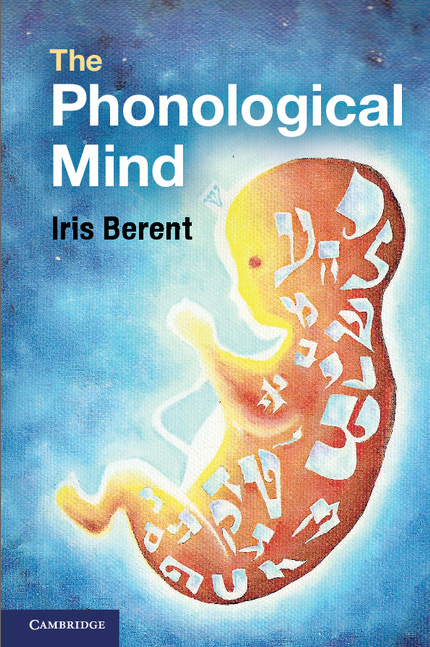BOSTON, Mass. — All languages—spoken or signed—are comprised of patterns of meaningless elements. We distinguish “god” and “dog”; we write blogs (not lbogs), and rhyme flood and blood. We begin extracting those sound patterns well before birth; we extend them even to words we’ve never heard before, and our instinct to do so is so robust that children have been shown to generate such patterns spontaneously, even if they have never been exposed to a language.

This ability to pattern words from meaningless linguistic elements is called phonology.
In this book, “The Phonological Mind,” published by Cambridge University Press, Northeastern University Prof. Iris Berent takes a bold new approach to studying to this component of the human language faculty. She proposes that the phonological system is a specialized system of “core knowledge”—an innate, set of universal linguistic principles present already in early development and affecting a broad range of phenomena, ranging from our instinctive linguistic communication to the cultural invention of reading and writing. She evaluates this proposal by adopting a fresh interdisciplinary perspective, integrating findings ranging from formal linguistics to cognitive psychology, neuroscience, genetics, and comparative research with nonhumans.
“The Phonological Mind” will be available in February 2013. To read an excerpt, or to pre-order Prof. Berent’s book, click here.
For more information on this study, please contact: Lori Lennon, Communications Coordinator/Senior Writer, College of Science, Northeastern University, 617/373.7686, 617/680.5129 (cell), [email protected]
Reviews:
“Although research on sentence processing has long been informed by syntactic theory, there has been more of a disconnect between phonological theory and research on word/sub-word processing. No more! This monograph establishes firmly how phonological theory and theories of speech processing are intricately connected. With this book, Berent cements her position as a major contributor to the research on speech processing and phonological theory, and the interface between these two fields.” — Andries W. Coetzee, University of Michigan
“The patterning of the sounds of language may be the most elegant system of human cognitive competence, yet this intricate beauty has not been appreciated by psychologists. The Phonological Mind will change that – it is a brilliant and fascinating analysis of how we produce and interpret sounds, which will give phonology its proper due as a major topic in cognitive science.” — Steven Pinker, Harvard College Professor of Psychology, Harvard University, and author of “The Language Instinct and The Stuff of Thought: Language as a Window into Human Nature”
“This is an important book that does a major service to several fields. In the context of articulating her position on algebraic phonology as a core system of knowledge, Berent covers an enormous range of phenomena very relevant to linguists, psychologists, speech scientists, and neurobiologists. With engaging and thoughtfully chosen examples ranging from development to brain science, the reader is treated to a great example of linguistics as cognitive science. The book succeeds in developing a view that offers productive linking hypotheses between language research, psychology, and biology.” — David Poeppel, New York University
“With the goal of demonstrating to a cognitive science audience that phonological patterns consist of abstract equivalence classes – whose members are treated in terms of across-the-board generalizations whether they are familiar or novel – Berent has formulated a compelling line of argumentation, both grand in scope and profound in empirical depth.” — Andrew Nevins, University College London
“In this wonderful work, Iris Berent shows how phonology can provide great progress on the classic ‘big questions’ of cognitive science, progress delayed for decades by the theoretical and empirical limitations of syntax. Berent manages to bring together a remarkably diverse body of research, much of it her own, accessibly presenting a wealth of information and insight while conveying the tremendous excitement in the field at this point in time. An amazing achievement, this book is to be read and enjoyed by anyone with a deep curiosity about the fundamental nature and source of nature’s biggest gift to our species: language.” — Paul Smolensky, Krieger-Eisenhower Professor of Cognitive Science, Johns Hopkins University
